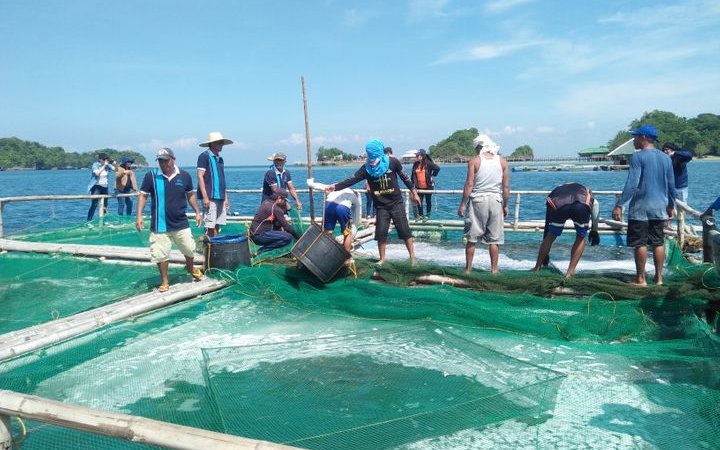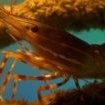A new feed formulation for milkfish and tilapia was developed through a Philippine collaborative project of NFRDI, BFAR and SEAFDEC. The initial results of the formulated diet promise a lowered aquaculture production cost and increased profits for small-scale fish farmers.
The collaborative project, called Aquafeed Research, Development and Extension Project (ARDEP), finished two of its field trials in Guimaras, Iloilo and the Science City of Muñoz, Nueva Ecija. The novel feed formulation by SEAFDEC/AQD incorporated minimal fishmeal and sourced locally available ingredients as an alternative protein source to make it cheaper. These ingredients include distiller’s dried grain with solubles, poultry by-product meal and the protein-enriched copra meal. Milkfish and tilapia were fed a commercial diet and the formulated low-cost feed.
Results from the milkfish trial showed an average body weight of 393.45 grams for milkfish fed with SEAFDEC/AQD diet, while milkfish fed with commercial diet weighed an average of 325.35 grams. Survival for milkfish fed with SEAFDEC/AQD Diet and milkfish fed with commercial diet was 92.83% and 91.45%, respectively.
Results from the tilapia trial showed an average body weight of SEAFDEC-treated tilapia of 338.24 g, while the control fed by commercial diet was at 308.24 g. Survival for SEAFDEC fed tilapia was 85.91% and 80.64% for tilapia fed with a commercial diet.
“With the goal of lowering the production cost in aquaculture and increasing profits for the small-scale fish farmers, the recent success of these field trial experiments encourages the project collaborators, the ARDEP group and NFRDI to continue the research and assessment of the novel formulated feed, to address further gaps and widen the scope of the verification studies across regions with varying culture environments for milkfish and tilapia. This will give more foundation to the data acquired from the research and eventually transfer the polished technology to small-scale Filipino farmers,” researchers said.













